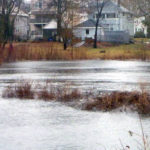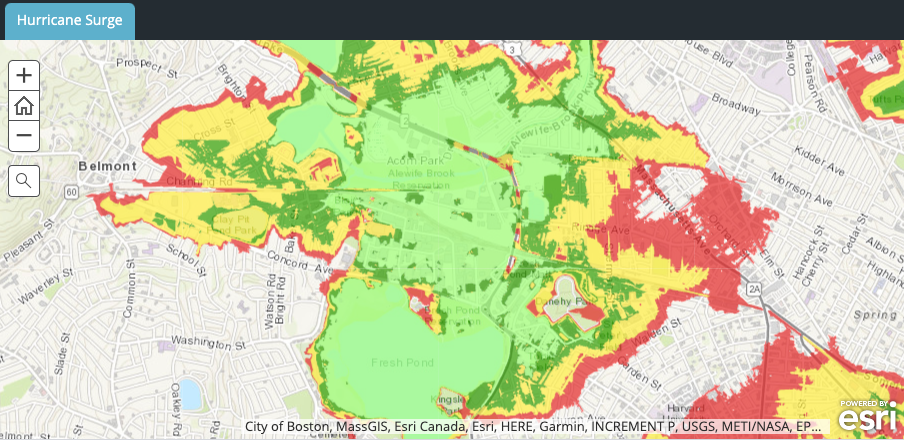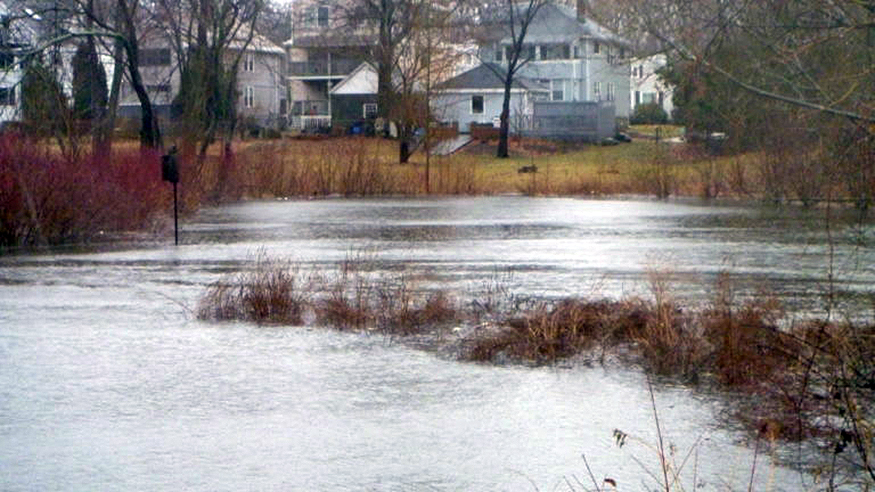
By Catherine Bowen
Take Belmont’s municipal vulnerability survey now.
How is Belmont preparing for the impacts of climate change?
As we are in the midst of a public health crisis, we are seeing the vulnerabilities and strengths of our community similarly to how we may experience them in a climate-change related crisis. It is timely that Belmont is now in the first phase of the Municipal Vulnerability Preparedness Program (MVP), a tool Massachusetts created in 2017 to enable local governments to prepare for the weather-related impacts of climate change and address vulnerabilities, including emergency communications.
Modeled on the state’s Green Communities Program, the MVP program awards competitive grants to designated communities to act on climate adaptation. Belmont received $31,000 for planning, one of 64 communities funded in 2019 by the Executive Office of Energy and Environmental Affairs (EOEEA) to identify vulnerabilities and determine the steps to be taken. Like other state-granting programs, the MVP program requires recipients to match 25% of funds for any selected project’s total cost, and report progress and outcomes of the grants. Grants favor nature-based solutions due to their resiliency and lower cost (Resilientma.org). Environmental Justice (EJ) communities are also given extra consideration due to their unique vulnerabilities.
The town held a workshop in January to fulfill requirements to be designated a Climate Change Municipal Vulnerability Preparedness Community (MVP Community). This workshop included presentations from EOEEA professionals and small group discussions with invited town department leaders, town committee members, and residents. The intention was to educate participants as well as identify Belmont vulnerabilities to climate change. These preliminary steps in education and evaluation are critical to developing an effective plan. A required public forum was held on April 22, after this issue went to press: slides from that forum are available at Bit.ly/BelmontMVPSlides.
While Belmont has a Climate Action Plan (2009), and subsequent Roadmap (2018, see Town Energy Committee), those plans primarily focus on prevention, identifying and reducing greenhouse gas emissions. The MVP focuses on adapting to and preparing for the effects of climate change.

Hurricane surge scenarios for category 1 hurricanes (light green) through category 4 (red). Source:mass-eoeea.maps.arcgis.com
What are Environmental Justice communities?
Environmental justice is based on the principle that all people have a right to be protected from environmental pollution and to live in and enjoy a clean and healthful environment. Environmental Justice communities in Massachusetts are defined as those that meet any of four conditions: (a) median household income is 65% or less of the statewide household median income; or (b) 25% or more of the residents are minority; or (c ) 25% or more of the residents are foreign born, or (d) 25% or more of the residents lack English language proficiency. Despite its relatively high median income and low minority population, Belmont is included among the 108 Environmental Justice Communities in Massachusetts by virtue of having 25% or more residents who are foreign born. (www.rd.usda.gov)
What are“nature-based solutions”?
Nature-based solutions can be as simple as planting more trees in a community. Trees cool the air on hot days, which will be needed as higher temperatures become more frequent, and they serve as windbreaks for buildings, reducing heating demand in cooler months. And, of course, trees improve air quality, most notably in the immediate vicinity of plantings. According to the Nature-Based Solutions platform created by the World Bank Group and others to assemble information about water resource and flood management projects around the world, these nature-based “green infrastructure” solutions can be more cost-effective than conventional “hard” engineering structures made of cement and metal like dams, levees, and channels. Nature-based solutions may be completely based on ecosystem elements or combined with conventional hard-engineering approaches. In this, resiliency planning may pose a challenge to business-as-usual planning assumptions.
What other preparations can Belmont make?
The MVP Action Grants can be used on a wide variety of issues. In addition to developing risk assessments and community education, they can help communities develop better bylaws and ordinances for resiliency. They can fund infrastructure and nature-based solutions to address urban heat islands and poor air quality in densely built areas. Communities are permitted to use them to acquire land, improve subsidized housing, address chemical safety, or increase energy resilience, such as pairing clean energy generation with technology that sustains utility services at key facilities during emergencies. An example of energy resilience systems is solar energy plus battery storage for backup power at storm shelters. The grants can also be used to improve water quality and infiltration, address flood zones, and right-size culverts. They can also address public health issues, such as reducing vulnerability to pests and vector-borne illnesses.
The MVP Program will spend around $1 billion by fiscal year 2022 to help communities protect themselves against the consequences of climate change. More information about the overall Statewide Hazard Mitigation and Climate Adaptation Plan is available at the state’s Climate Change Clearinghouse, resilientma.org.
Catherine Bowen is a School Committee member and Town Meeting member. Any opinion represented here is her own and not that of the Belmont School Committee.



Sorry, the comment form is closed at this time.